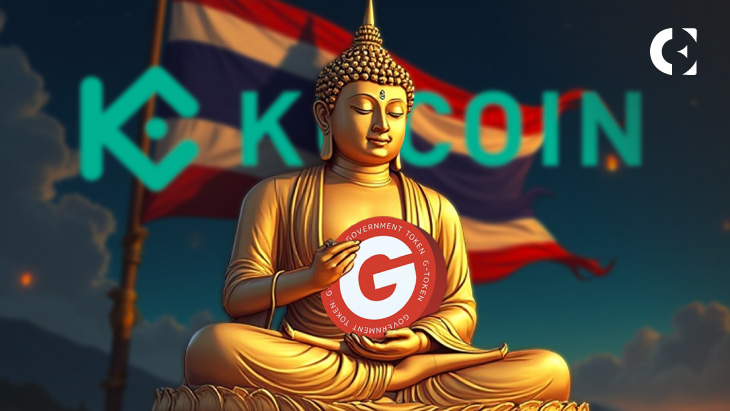- Thailand launches the G-Token, the first-ever government bond issued and traded via blockchain technology.
- KuCoin leads the initiative, enabling access to secure sovereign debt.
- The project lowers investment barriers and positions Thailand as a digital finance leader in Southeast Asia.
Global crypto exchange KuCoin has become the first international platform to support Thailand’s G-Token, an initiative by the Ministry of Finance to tokenize sovereign bonds. This marks the first time a government-issued bond has been listed on a digital asset exchange, and a significant milestone in real-world asset (RWA) tokenization.
What Is Thailand’s G-Token?
Launched under the Public Debt Management Act, the G-Token is the world’s first government bond fully issued on blockchain infrastructure. Developed by Thailand’s Ministry of Finance, the initiative merges the security of sovereign debt with the benefits of decentralized technology.
Unlike cryptocurrencies, the G-Token is a regulated financial instrument, fully guaranteed by the Ministry of Finance. It offers retail and institutional investors access to government bonds with guaranteed principal and interest repayment.
KuCoin’s Role in the G-Token Initiative
KuCoin is the first and only global exchange supporting the G-Token program. Working with local partners like XSpring Digital and KuCoin Thailand, the platform will handle the subscription, redemption, and secondary trading of the tokenized bond.
KuCoin Thailand, licensed by the Thai SEC, will oversee local operations. Meanwhile, KuCoin’s global platform is working toward an international listing of the G-Token, pending regulatory approval, which will expand access to this innovation worldwide.
How Does Blockchain Expand Access to Government Bonds?
Traditionally, you needed a lot of capital to buy government bonds, which locked out most everyday investors. The G-Token lowers these barriers, empowering a broader range of investors. Through blockchain, the initiative delivers:
- Transparency: On-chain, verifiable transaction records.
- Efficiency: Streamlined issuance and reduced operational costs.
- Liquidity: Tradability through secondary markets.
Thailand now stands at the forefront of blockchain-based public finance, setting a precedent for other nations.
What’s the Big Picture for KuCoin and RWAs?
KuCoin noted the project marks a milestone in advancing RWA tokenization and bridging traditional finance with digital assets. The exchange will also serve as a key advisor on secondary market development and international expansion for the G-Token ecosystem.
BC Wong, CEO of KuCoin, emphasized that the collaboration “sets a global benchmark for financial innovation and inclusion,” reinforcing the company’s mission to connect traditional capital with the digital economy.
Notably, KuCoin serves over 41 million users across more than 200 countries and regions, providing them with access to over 1,000 listed digital assets.
Disclaimer: The information presented in this article is for informational and educational purposes only. The article does not constitute financial advice or advice of any kind. Coin Edition is not responsible for any losses incurred as a result of the utilization of content, products, or services mentioned. Readers are advised to exercise caution before taking any action related to the company.







